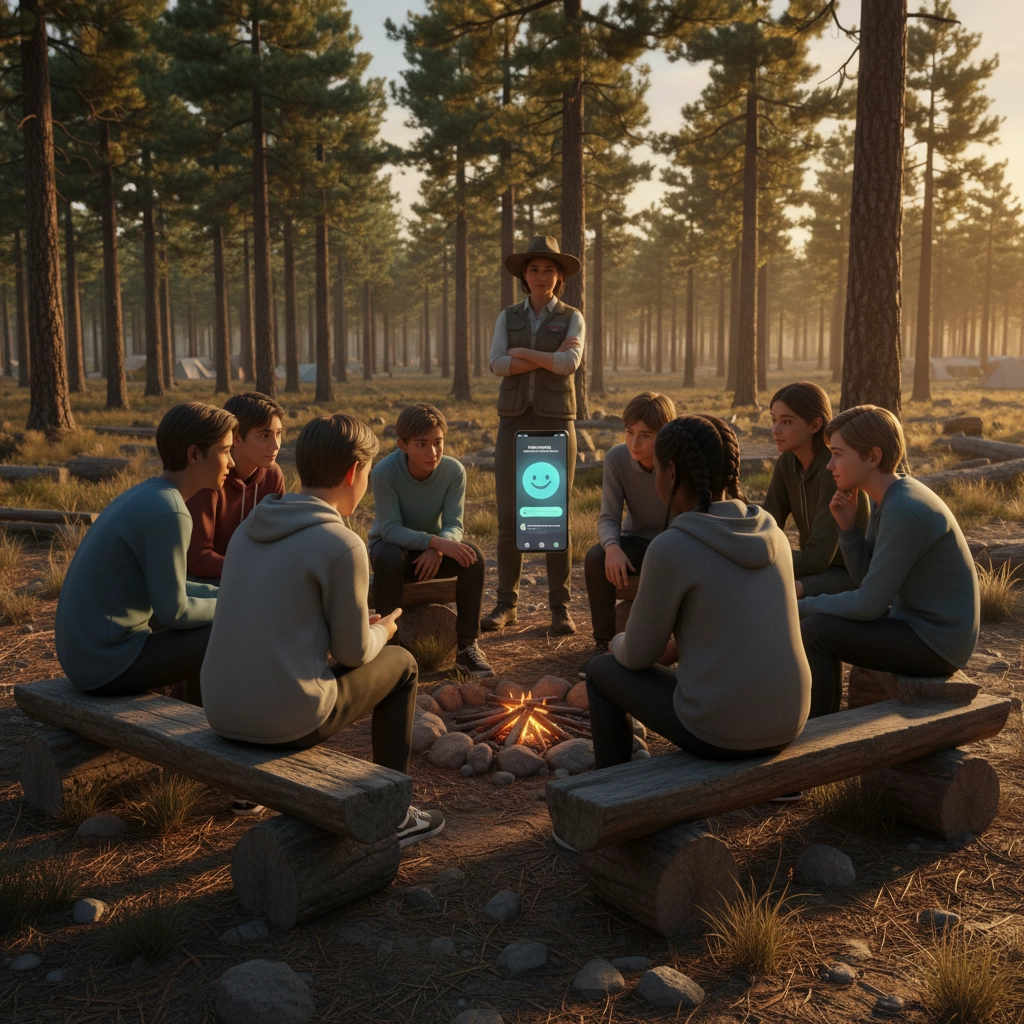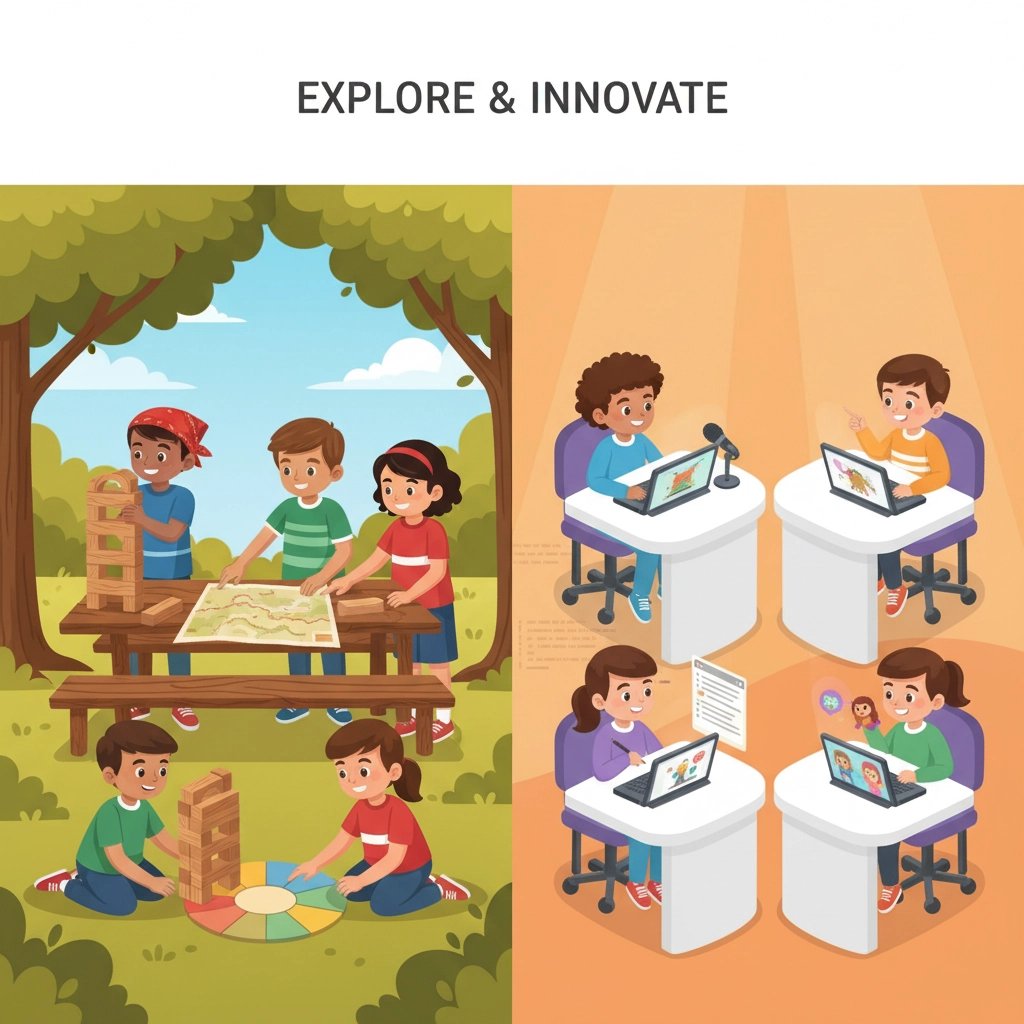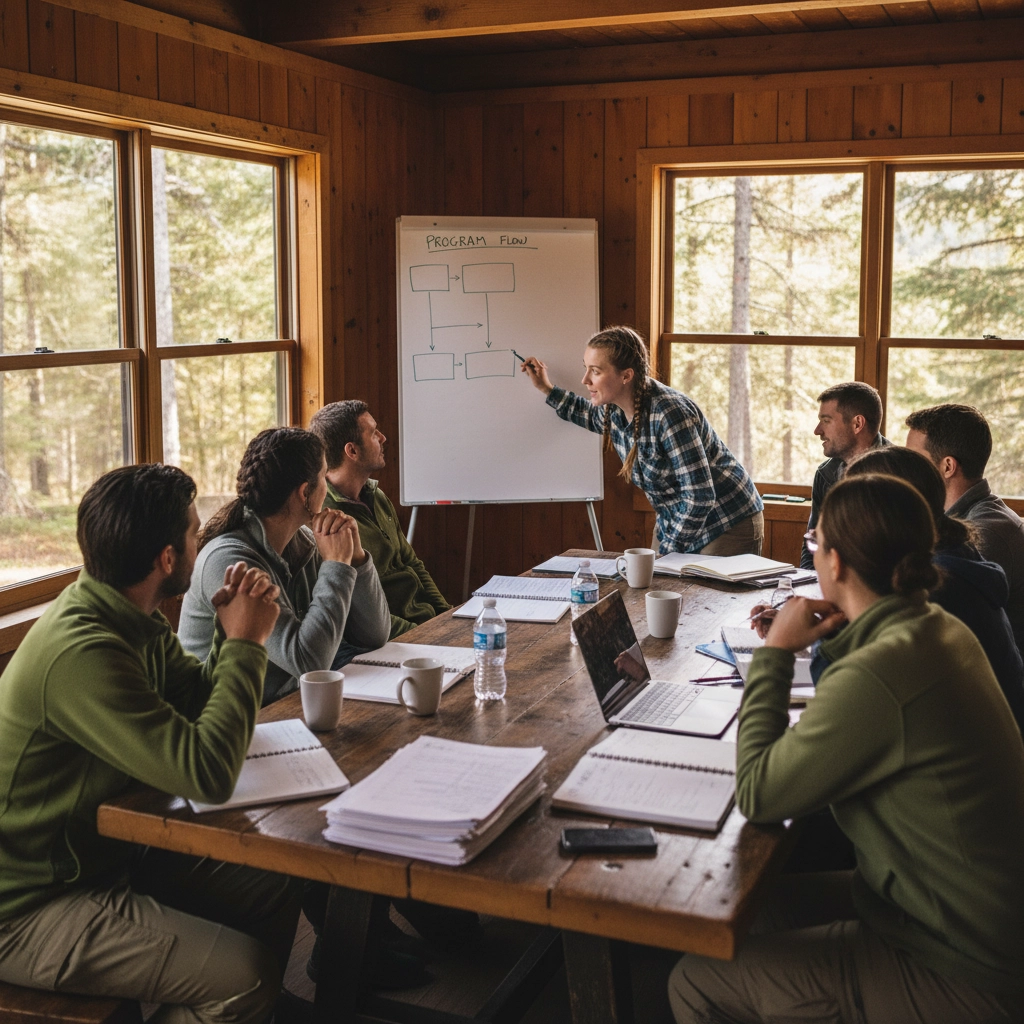The Summer Camp Daily Brief – October 20, 2025
- Matthew Kaufman

- Oct 20
- 4 min read
Good morning from camp world. Today's brief circles around one theme that's becoming impossible to ignore: how we're handling AI and automation with kids. The news keeps pointing to the same truth: tech companies are scrambling to put guardrails on AI interactions with young people, which means we need to get ahead of this at camp.
Story of the Day
Meta Introduces New Parental Controls for Teen-AI Chats
Meta just announced new parental controls launching early next year that will let parents disable one-on-one chats between teens and AI characters, block specific chatbots, and get limited insight into their kids' AI conversations.
Here's why this matters for your camp: even Big Tech is recognizing that young people need structured guidance around AI interactions. That's a pretty clear signal that we should be proactively designing how we allow: and guide: AI and automation in our camp experience, especially with Gen Z staff and Gen Alpha campers who are growing up with this stuff.
This isn't about fear-mongering technology. It's about being intentional with how we use it.

What's Going On
The AI-in-education conversation is heating up from multiple angles:
Australia's Education Warning: The education minister warned that AI chatbots have been bullying children and even encouraging self-harm in some documented cases.
Major Investment in Teacher Training: Tech companies like Microsoft and OpenAI are investing millions in teacher micro-credentials for AI fluency, basically admitting that educators need specific skills to handle this tech responsibly.
International Innovation: In India, a school installed AI-smart boards in a slum-area madrassa to enhance access and learning through automation tools, showing how AI can democratize education when used thoughtfully.
The Critical Thinking Concern: Researchers are flagging that over-reliance on AI may reduce opportunities for independent thinking and problem-solving: exactly the skills camp is designed to build.
The pattern is clear: AI can be a powerful tool, but without intentional boundaries and teaching, it can undermine the very skills we're trying to develop in young people.
Why It's Important for Camp
Technology Arrives Whether We Plan for It or Not
Kids show up to camp with AI assistants in their pockets. Your staff are probably experimenting with automated tools for everything from photo captions to activity planning. Rather than pretending it doesn't exist, we can set clear, healthy norms around how we use AI and automation.
Skill Building + Safe Boundaries = Better Outcomes
Just like Meta's new controls show, this isn't about banning technology: it's about how we use it. Camp is the perfect environment to model healthy AI use (storytelling, creative media projects) while protecting against the risks (privacy concerns, over-dependency, expecting automation to solve everything).
Your Staff Training Matters More Than Ever
Gen Z staff are digital natives, but that doesn't automatically make them thoughtful automation users. Investing time in training your team on when and why to use AI tools in camp tasks gives you a huge advantage in both execution and care quality.
Child Development and Independence Are at Stake
For Gen Alpha campers especially, heavy automation can undermine key developmental gains like persistence, creativity, and self-regulation. When kids get used to having AI do the thinking for them, they miss out on building those mental muscles that camp is uniquely positioned to strengthen.
This is where camp's core mission becomes more important than ever: we're not just giving kids a break from screens, we're teaching them how to be effective problem-solvers who can use technology as a tool rather than a crutch.

Actionable Insights for Your Week
1. Audit Your Current Tech Use
Make a simple table of all automated tools your camp uses: registration systems, scheduling bots, photo generators, FAQ chatbots. For each one, note who uses it, what input it requires, and what supervision is in place. You might be surprised by how much automation has crept in.
2. Host a Staff "AI Ethics & Automation" Huddle
Use the Meta story as your starting point. Ask your team: "If a camper uses our camp chatbot or an AI photo tool, what boundaries should we set?" Come up with two simple rules: one for safe automated use, and one for situations where human-first is required (like emotional check-ins or conflict resolution).
3. Design "Low-Tech First" Activities
Try this: instead of using an AI-driven photo caption generator, have campers craft captions manually first, then compare with an automated version. Debrief together: "What did I lose or gain when I let the tool do the work?" This builds critical thinking about when automation helps and when it hurts.
4. Set Daily "Camp Hour" Tech Boundaries
Designate one hour each day where no automation tools are used: staff and campers alike schedule manually, take notes by hand, reflect verbally. This isn't anti-technology; it's pro-balance. It helps everyone calibrate the difference between automated efficiency and human connection.
5. Create an AI/Automation Reflection Sheet
Make a simple tip sheet with two sides: "When I used an automated/AI tool this week..." and "What did I learn? What didn't the tool do for me?" Post it in your staff room and media areas. The goal is building awareness, not judgment.
The key insight here? Camp has always been about building independent thinkers and creative problem-solvers. Now we just need to be more intentional about how technology fits into that mission.

The Bigger Picture
What we're seeing in these news stories is confirmation of something camp professionals have always known: young people need guided practice with tools, not unlimited access without boundaries. Whether it's learning to use a camp stove safely or navigating AI responsibly, the principle is the same.
Camp gives us a unique opportunity to model thoughtful technology use. We can show kids and staff how to leverage AI for creativity and efficiency while maintaining the human connections and independent thinking skills that make us effective in any context.
The question isn't whether AI and automation will be part of camp life: they already are. The question is whether we'll be intentional about how we integrate them with our core mission of developing capable, creative, connected young people.
Your move: pick one item from the actionable list above and try it this week. Let us know how it goes.
Follow@mattlovescampfor daily updates and join the conversation atwww.ilove.campto connect with camp professionals navigating these same challenges.
Looking for more practical camp management insights? Check out our recent posts onstaff training activities that actually workandthe real role of tech at camp.



Comments